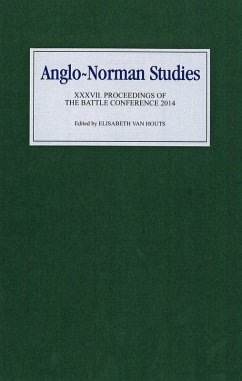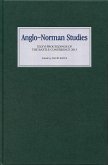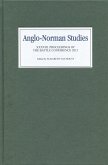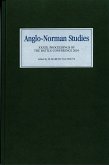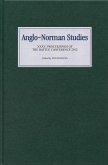The latest research on aspects of the Anglo-Norman world.
The contributions collected here demonstrate the full range and vitality of current work on the Anglo-Norman period, from a variety of different angles and disciplines. Topics include architecture and material remains in Winchester, Kent and Hampshire; the role of Duke Richard II and Abbot John of Fécamp in early Normandy; political and liturgical culture at the Anglo-Norman and Angevin courts; the lost (illustrated?) prototype of Dudo of Saint-Quentin's early Norman history and Geoffrey of Monmouth's motivation for his Historia Regum Britonum; twelfth-century legal scholarship and the archaic use of vernacular vocabulary in law texts; trade and travel; and a study of episcopal acta from the south-western Norman dioceses.
Contributors: Richard Allen, Pierre Bauduin, Johanna Dale, Jennifer Farrell, Peter Fergusson, Sara Harris, Nicholas Karn, Edmund King, Lauren Mancia, Eljas Oksanen, Gesine Oppitz-Trotman, Benjamin Pohl, Katherine Weikert
The contributions collected here demonstrate the full range and vitality of current work on the Anglo-Norman period, from a variety of different angles and disciplines. Topics include architecture and material remains in Winchester, Kent and Hampshire; the role of Duke Richard II and Abbot John of Fécamp in early Normandy; political and liturgical culture at the Anglo-Norman and Angevin courts; the lost (illustrated?) prototype of Dudo of Saint-Quentin's early Norman history and Geoffrey of Monmouth's motivation for his Historia Regum Britonum; twelfth-century legal scholarship and the archaic use of vernacular vocabulary in law texts; trade and travel; and a study of episcopal acta from the south-western Norman dioceses.
Contributors: Richard Allen, Pierre Bauduin, Johanna Dale, Jennifer Farrell, Peter Fergusson, Sara Harris, Nicholas Karn, Edmund King, Lauren Mancia, Eljas Oksanen, Gesine Oppitz-Trotman, Benjamin Pohl, Katherine Weikert
Dieser Download kann aus rechtlichen Gründen nur mit Rechnungsadresse in A, D ausgeliefert werden.

